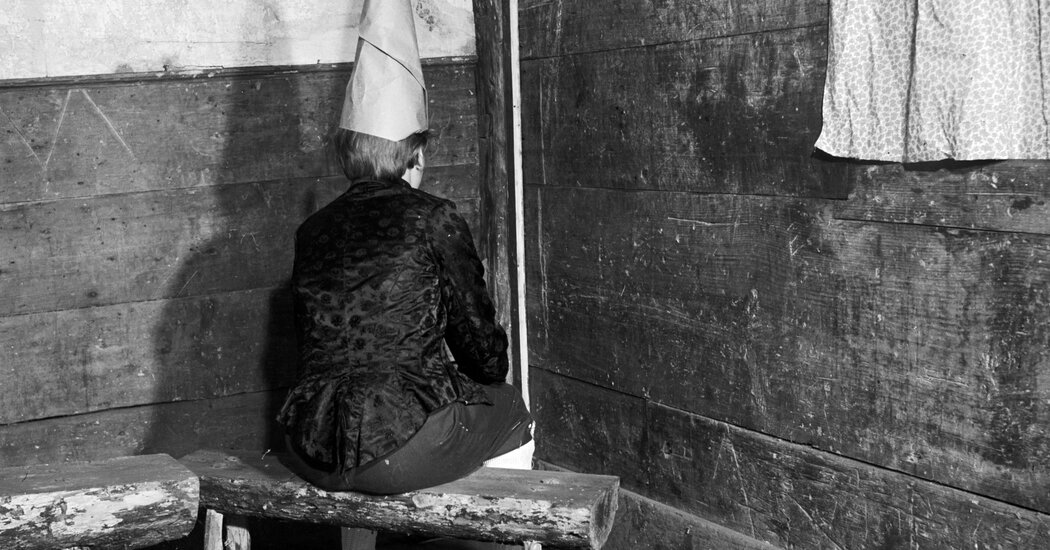
Its absence can be liberating or terrifying, depending on where you sit. When he was president, Donald Trump was often described as shameless, berating his opponents in the most lurid terms, gleefully signaling his imperviousness to decorous (or even democratic) opinion. His supporters still love him for this, excited by his willingness to say all of the obnoxious things they used to be “allowed” to say but can’t anymore. You could call it reactionary shamelessness — a defiant refusal to accept that the norms of the culture have changed, and a nostalgia for a time when Trump’s supporters were the ones doing the shaming. Over the last several decades people who might have been on the receiving end of such mockery have asserted their right not to be shamed for their weight, for their gender, for their desires.
This assertion is a kind of shamelessness, too, but according to Cathy O’Neil’s new book, “The Shame Machine,” it’s of a different kind — not bitter and resentful but “healthy and freeing.” O’Neil distinguishes between shame that “punches down” and shame that “punches up.” To punch down is to deride and shun people for things that O’Neil says are largely shaped by forces beyond their control; for her, these include addiction, obesity and poverty. To punch up is to hold the powerful to account for their deeds — “police chiefs, governors, CEOs.”
Such distinctions are bound to be controversial — too categorical or potentially condescending, portraying people as more abject than they might see themselves to be. O’Neil’s previous book, “Weapons of Math Destruction,” explored how algorithms encode and exacerbate inequality; the “shame machines” in her new book, which include the weight loss and wellness industries, function similarly — fueling bad feeling in order to buoy profits while maintaining an unfair status quo.
But we shouldn’t ignore how shame has also been used as a force for positive change, O’Neil says. She quotes what Frederick Douglass said he hoped to do for America: to use “the public exposition of the contaminating and degrading influence of Slavery” in order to “shame her out of her adhesion to a system so abhorrent to Christianity and to her republican institutions.” At a time when slavery was still legally sanctioned, Douglass couldn’t appeal to government authority, but he could appeal to its ostensible ideals.
“In some cases, shaming is all we have,” Jennifer Jacquet, a professor of environmental studies, writes in “Is Shame Necessary?” (2015). Shame is powerful and also wildly imprecise, meaning it must be deployed “shrewdly,” she says, with “scrupulous implementation.” Overzealous deployment can backfire, making the target feel victimized and even more isolated. “As with antibiotics, if shaming is abused, we might all end up as victims,” she writes.




